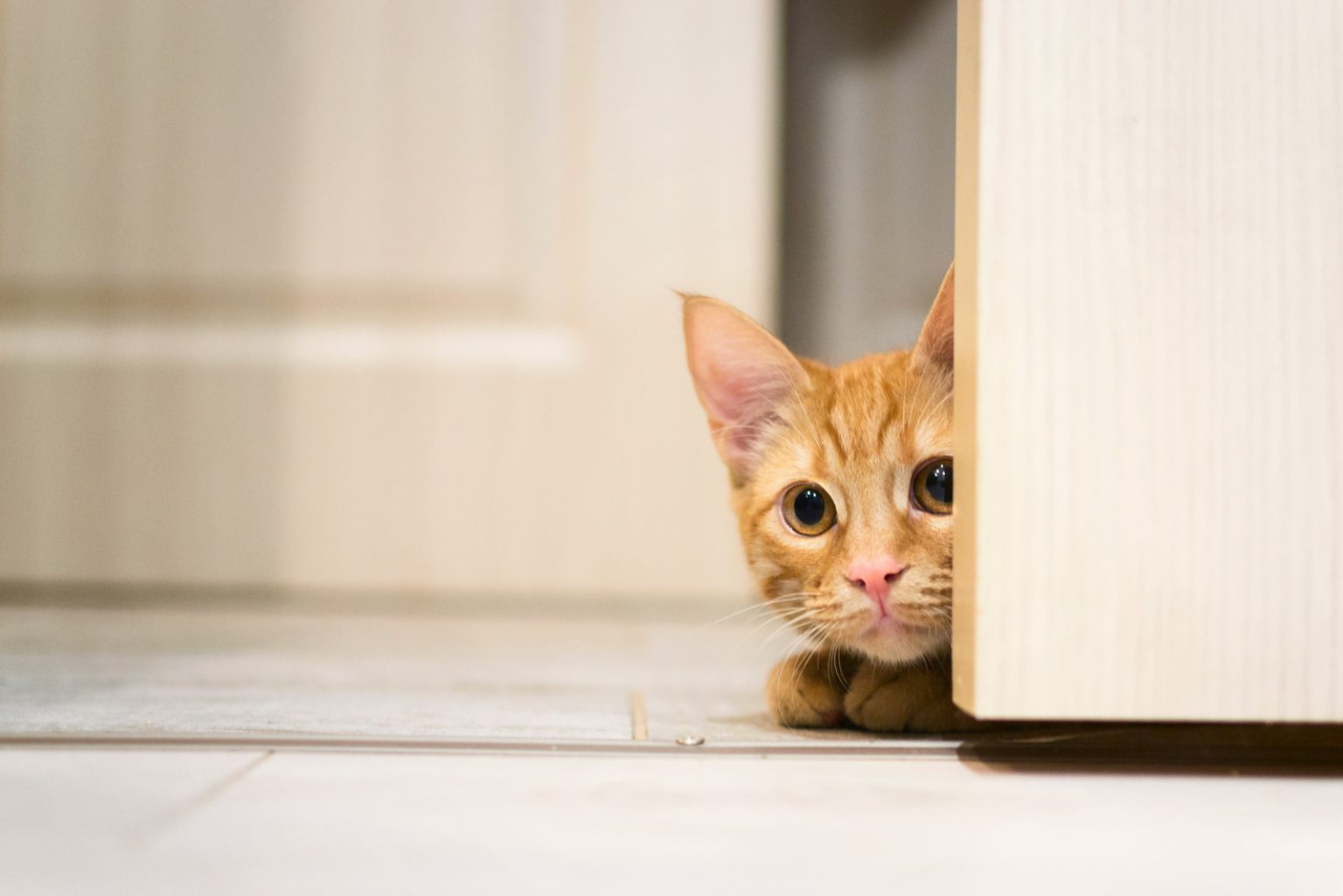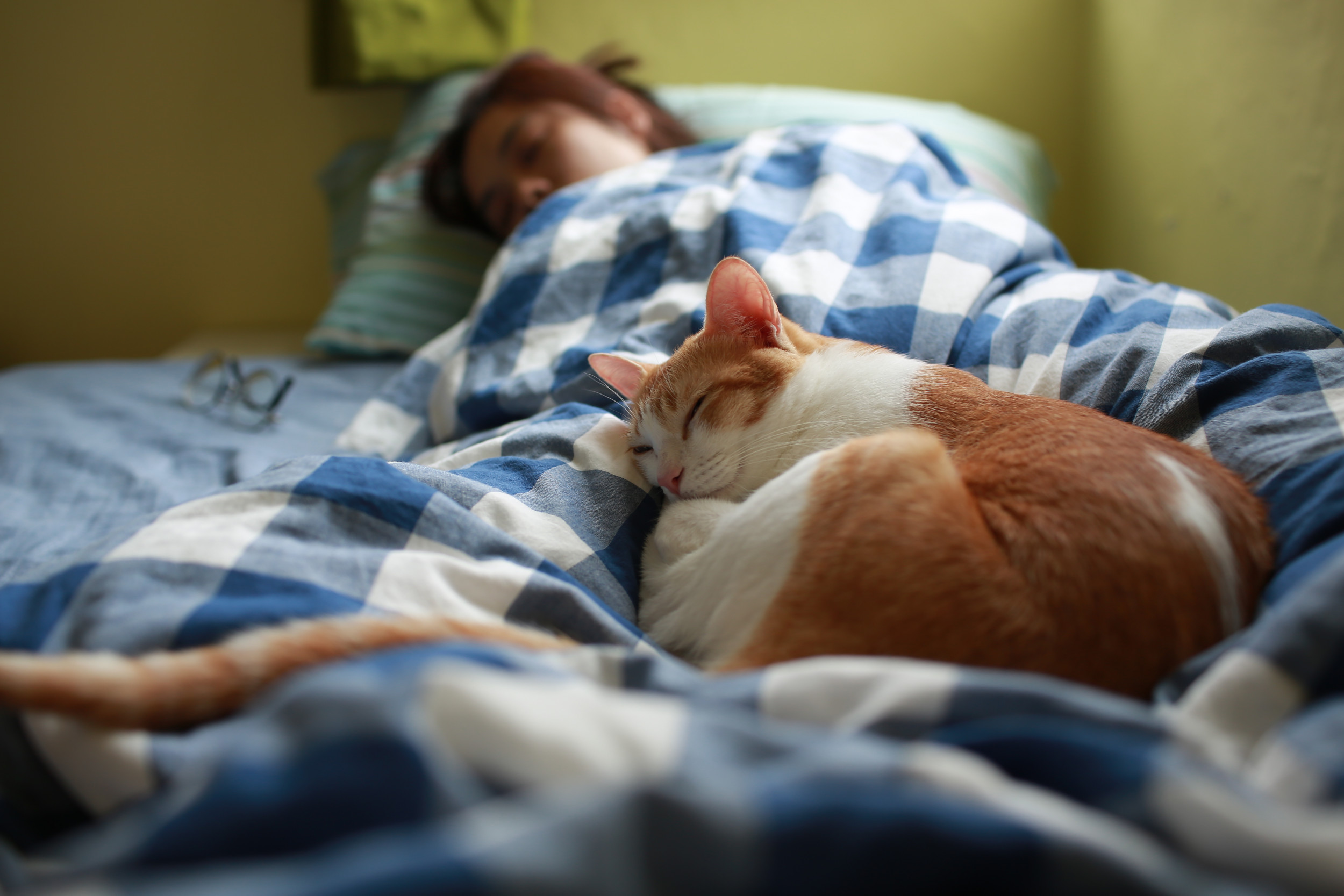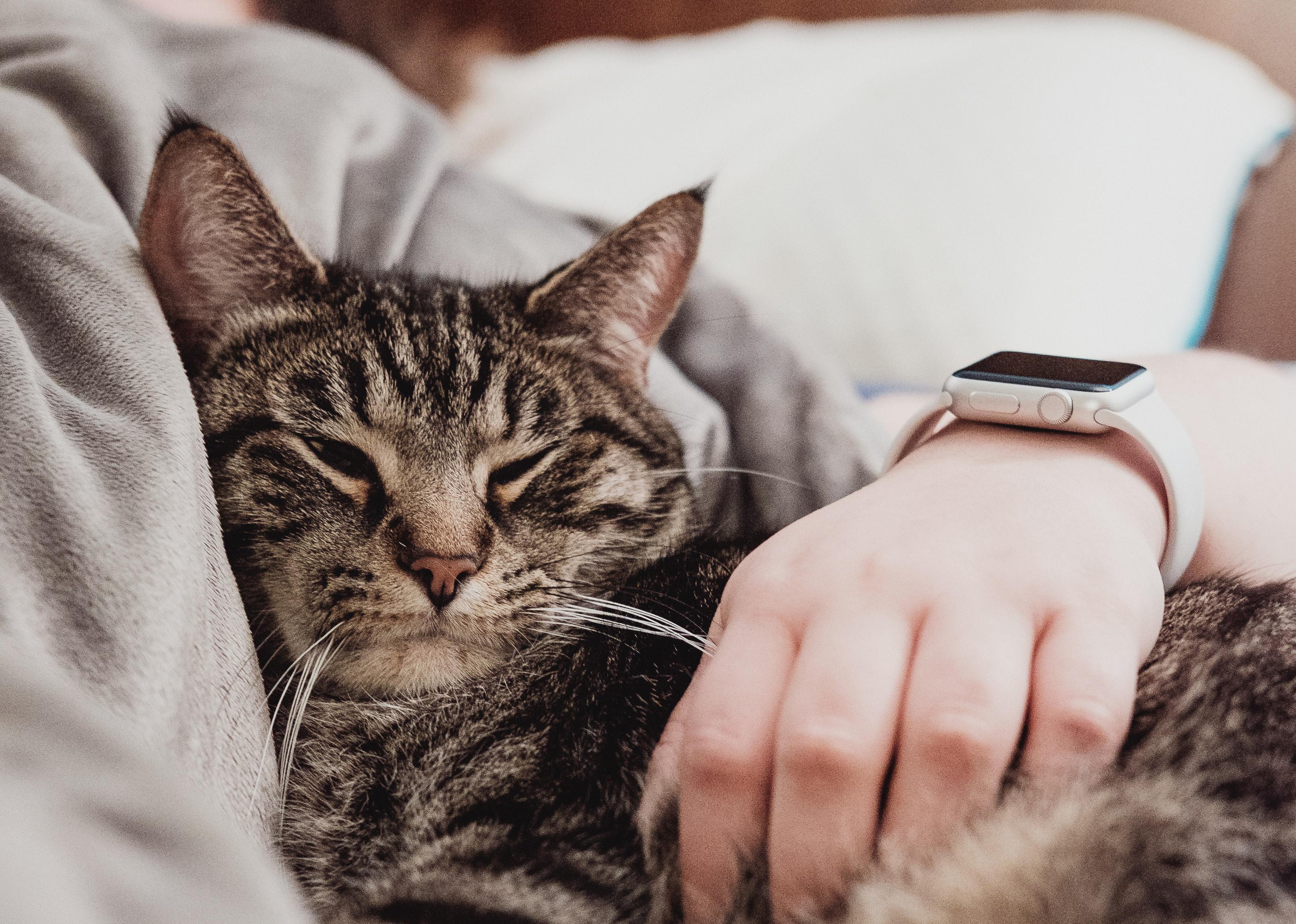Cat Behavior and Sleep Patterns: My Cat Sleeps Outside My Bedroom Door

Cats are known for their love of sleep, spending an average of 12 to 16 hours a day snoozing. While their preference for napping is well-documented, the specific locations they choose to rest can be intriguing and offer insights into their behavior and needs. One such phenomenon is the cat’s tendency to sleep outside a bedroom door, a behavior that often sparks curiosity among owners.
Reasons for Sleeping Outside a Bedroom Door
Cats may choose to sleep outside a bedroom door for various reasons, ranging from comfort and security to strategic positioning.
- Proximity to Humans: Cats are social creatures and often seek proximity to their human companions. Sleeping outside a bedroom door allows them to be close to their owners while maintaining a sense of independence. This position provides a balance between closeness and personal space, allowing them to monitor their owner’s movements and be readily available for attention.
- Warmth and Comfort: The area near a bedroom door can be a warm and comfortable spot, especially in colder weather. The heat radiating from the door can create a cozy microclimate, providing a comfortable spot for the cat to rest.
- Strategic Positioning: Cats are natural hunters and often prefer to sleep in locations that offer a vantage point. The area outside a bedroom door can provide a strategic position from which they can observe their surroundings and potentially detect any threats or prey. This strategic positioning allows them to feel safe and secure while they sleep.
- Sound of Human Movement: Cats are sensitive to sounds, and the area outside a bedroom door is often a good location to hear human movement. The sound of their owner getting ready for bed or waking up in the morning can be a cue for the cat to join them, reinforcing their bond and providing a sense of security.
Factors Influencing Cat Sleeping Preferences
Several factors can influence a cat’s choice of sleeping location, including:
- Personality: Each cat has a unique personality and preferences. Some cats are more social and seek close proximity to their owners, while others prefer solitude and may choose to sleep in secluded locations.
- Environmental Factors: The environment plays a significant role in a cat’s choice of sleeping location. Factors like temperature, light levels, and noise can all influence their preferences.
- Previous Experiences: Past experiences can also shape a cat’s sleeping habits. For example, a cat that has been punished for sleeping in a certain location may avoid that area in the future.
Benefits and Drawbacks of Sleeping Near a Bedroom Door, My cat sleeps outside my bedroom door
While sleeping near a bedroom door can be beneficial for both the cat and the owner, there are also potential drawbacks to consider.
- Benefits:
- Increased Bonding: Sleeping near the bedroom door can strengthen the bond between the cat and owner by providing a sense of closeness and security.
- Improved Sleep Quality: The sound of the cat purring or sleeping near the door can be soothing and may even improve the owner’s sleep quality.
- Early Morning Companionship: The cat’s presence near the bedroom door can provide early morning companionship, offering a gentle wake-up call and a furry friend to start the day.
- Drawbacks:
- Disturbances: The cat’s movement or vocalizations may disturb the owner’s sleep, especially if they are a light sleeper.
- Potential for Accidents: If the cat is prone to accidents, sleeping near the bedroom door could increase the risk of accidents, such as spilling water or knocking over objects.
- Limited Privacy: The cat’s presence near the bedroom door may limit the owner’s privacy, especially if they prefer to sleep alone.
Understanding Cat Communication

Cats are masters of subtle communication, often conveying their feelings and desires through a complex blend of body language, vocalizations, and scent signals. While their intentions might not always be obvious to us, understanding their communication cues can strengthen the bond between you and your feline companion.
Cat Communication Through Sleep Location
Your cat’s choice to sleep outside your bedroom door could be a subtle way of communicating their needs or desires. While it’s natural for cats to seek out cozy and secure spots to rest, their specific location choice might hold a deeper meaning. Here are some possible interpretations:
- Seeking Attention: Sleeping outside your door could be a way for your cat to gently remind you of their presence and desire for interaction. They might be hoping for a little petting, playtime, or simply your company.
- Expressing Anxiety: If your cat is feeling anxious or stressed, they might seek out a location that provides a sense of security and proximity to you. Sleeping outside your door could be a way for them to feel safe and comforted by your presence.
- Territorial Marking: Cats often use scent to mark their territory, and sleeping outside your door could be a way for your cat to subtly assert their presence in your space. This could be especially true if they are sharing their home with other cats or pets.
- Seeking Comfort: Cats are naturally drawn to warmth and comfort, and sleeping outside your door could be a way for them to take advantage of the warmth emanating from your room. This is particularly common during colder months.
Cat Body Language
Cats are incredibly expressive creatures, using a variety of subtle body language cues to communicate their emotions and intentions. Understanding these cues can help you interpret your cat’s behavior and respond accordingly.
- Ears: Forward, erect ears indicate alertness and interest, while flattened ears suggest fear or aggression. Ears that are rotated backward can indicate that a cat is feeling threatened or defensive.
- Tail: A tail that is held high and upright suggests confidence and happiness. A twitching tail can indicate excitement or anticipation, while a tail that is tucked between the legs signals fear or anxiety. A tail that is swishing back and forth could indicate agitation or aggression.
- Eyes: Dilated pupils can indicate fear, excitement, or aggression. Slow blinking is a sign of trust and affection. A wide-eyed stare, especially with a flattened ear, can indicate aggression.
- Mouth: An open mouth with a relaxed jaw usually indicates contentment. A closed mouth with lips slightly pulled back can suggest anxiety or stress. An open mouth with bared teeth and a hissing sound is a clear warning sign of aggression.
- Body Posture: A relaxed, curled-up posture suggests contentment and comfort. A tense, arched back with a raised tail can indicate fear or aggression. A cat that is crouching low to the ground with its tail tucked between its legs is likely feeling threatened or anxious.
Understanding Cat Communication Through Behavior
Here’s a table comparing different cat behaviors and their potential meanings:
| Behavior | Potential Meaning | Rubbing against you | Marking you with their scent as part of their territory | Slow blinking | Expressing affection and trust | Kneading | A sign of contentment and comfort | Purring | A sign of contentment, relaxation, or even a way to soothe themselves | Hissing | A warning sign of aggression or fear | Growling | A more serious warning sign of aggression | Scratching | Marking territory and sharpening claws | Head bunting | A sign of affection and bonding | Vocalizations | Can include meows, purrs, chirps, and hisses, each with its own meaning |
|---|
Strategies for Managing Cat Sleep Habits

Your cat’s sleep schedule might be a source of frustration, especially if they prefer to sleep outside your bedroom door. Understanding the reasons behind this behavior can be the first step towards finding a solution. While cats are known for their independent nature and often sleep for a significant portion of the day, their sleep patterns can vary depending on their age, breed, and environment.
Encouraging Your Cat to Sleep in a Different Location
It’s essential to understand that cats are creatures of habit. They are more likely to sleep in a specific location due to comfort, familiarity, and security. A comfortable bed, a quiet corner, or a place that offers a sense of security can influence their sleep choices.
Strategies to Encourage Sleep in a Different Location
- Make the Designated Sleep Area Appealing: Create a cozy and inviting space with a comfortable bed, soft blankets, and perhaps a few toys. The bed should be large enough for your cat to stretch out comfortably. Make sure the area is free of drafts and noise.
- Positive Reinforcement: Reward your cat with treats or praise when they sleep in the designated area. This positive reinforcement will help associate the area with positive experiences.
- Make the Current Sleep Spot Less Appealing: You can try moving the cat’s bed away from your bedroom door, making the area less comfortable, or placing a deterrent like a citrus-scented spray. However, ensure the new location is safe and comfortable for your cat.
- Gradually Move the Bed: If your cat is resistant to moving their bed, try gradually moving it further away from your bedroom door over a few days. This can help your cat adjust to the new location without feeling overwhelmed.
- Consider a Cat Tree: Cat trees offer multiple levels and provide a sense of security. They can be an excellent alternative sleep spot, especially if they are placed near a window where your cat can enjoy the view.
My cat sleeps outside my bedroom door – While my cat’s preference for sleeping outside my bedroom door might seem peculiar, it highlights the importance of creating a comfortable and inviting space for both human and animal companions. A well-designed bedroom, like those found in the article “Bedroom Fit for a King and Queen: Design a Royal Retreat” bedroom fit for a king and queen , can cater to the needs of all occupants, ensuring a peaceful and harmonious environment for everyone, including a feline friend who prefers a strategic sleeping spot.
While my cat’s preference for sleeping outside my bedroom door remains a mystery, perhaps it’s a subconscious desire for a more calming environment. A dark green gold bedroom could offer a sense of tranquility and security, similar to the space my cat seeks outside my door.
It’s possible that the color combination, often associated with nature and wealth, could evoke a feeling of comfort and safety for both humans and animals.